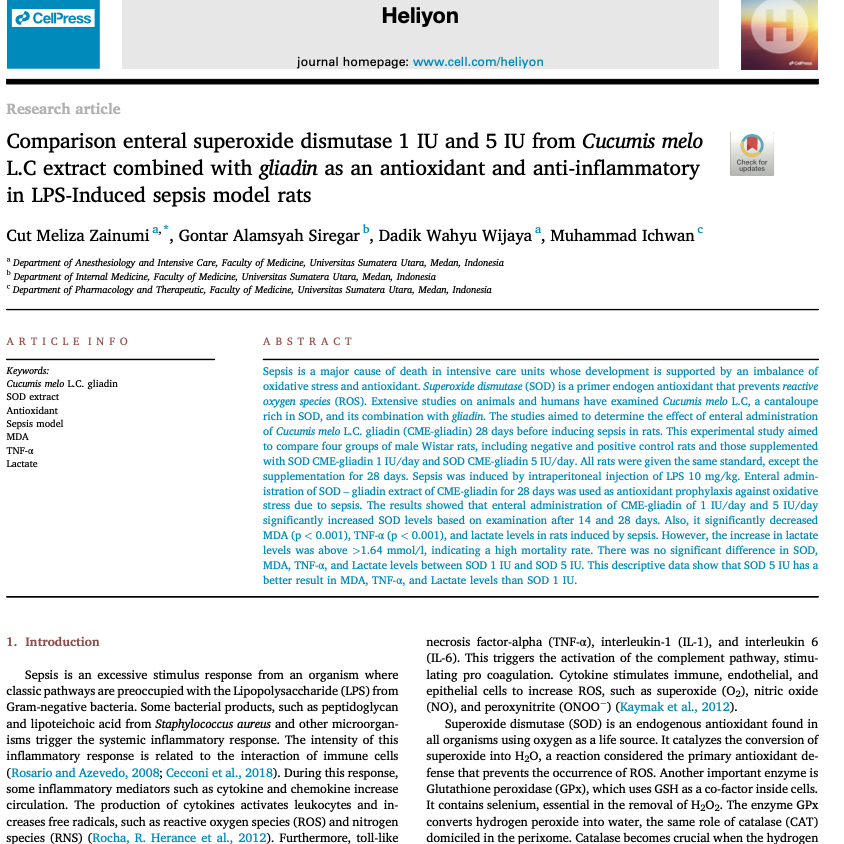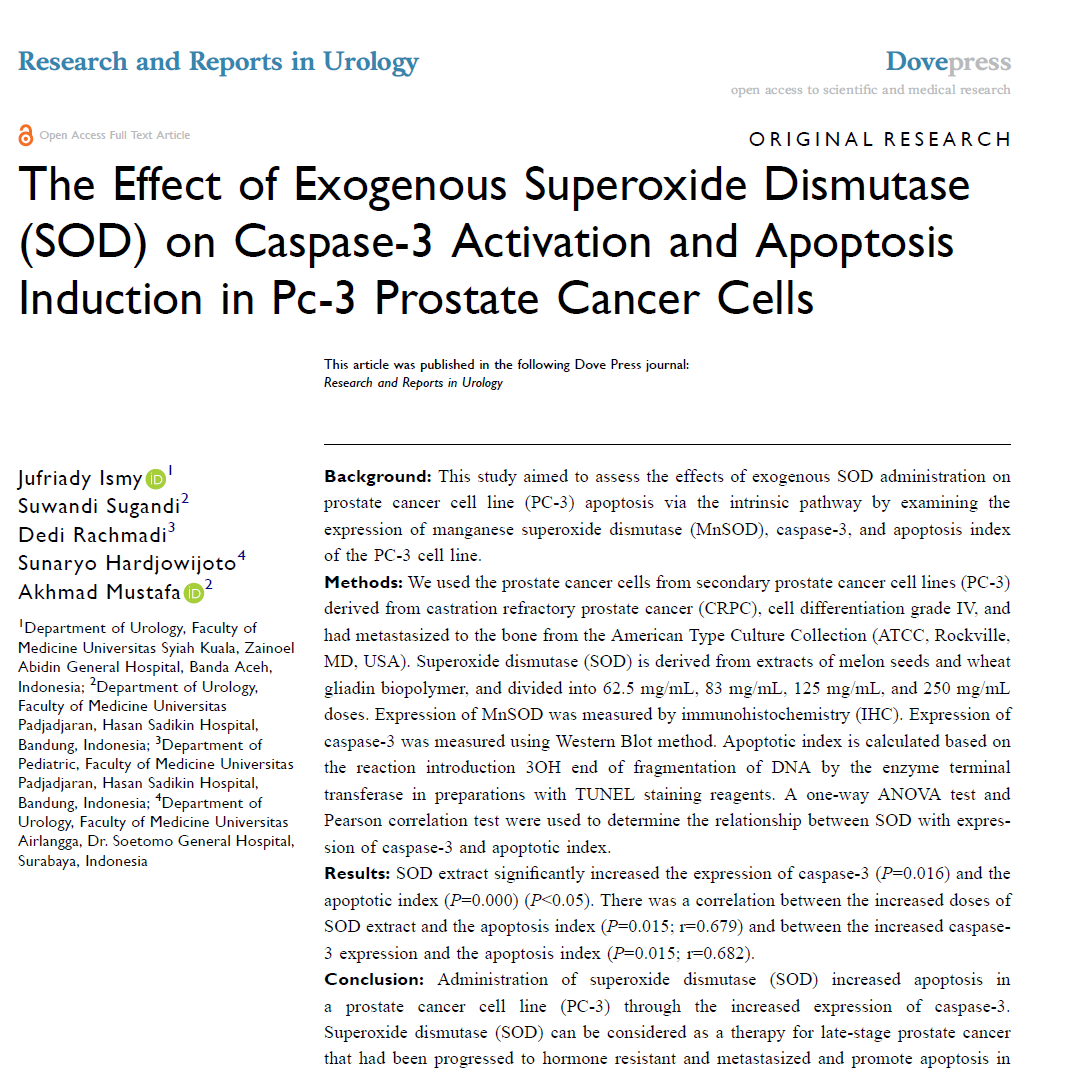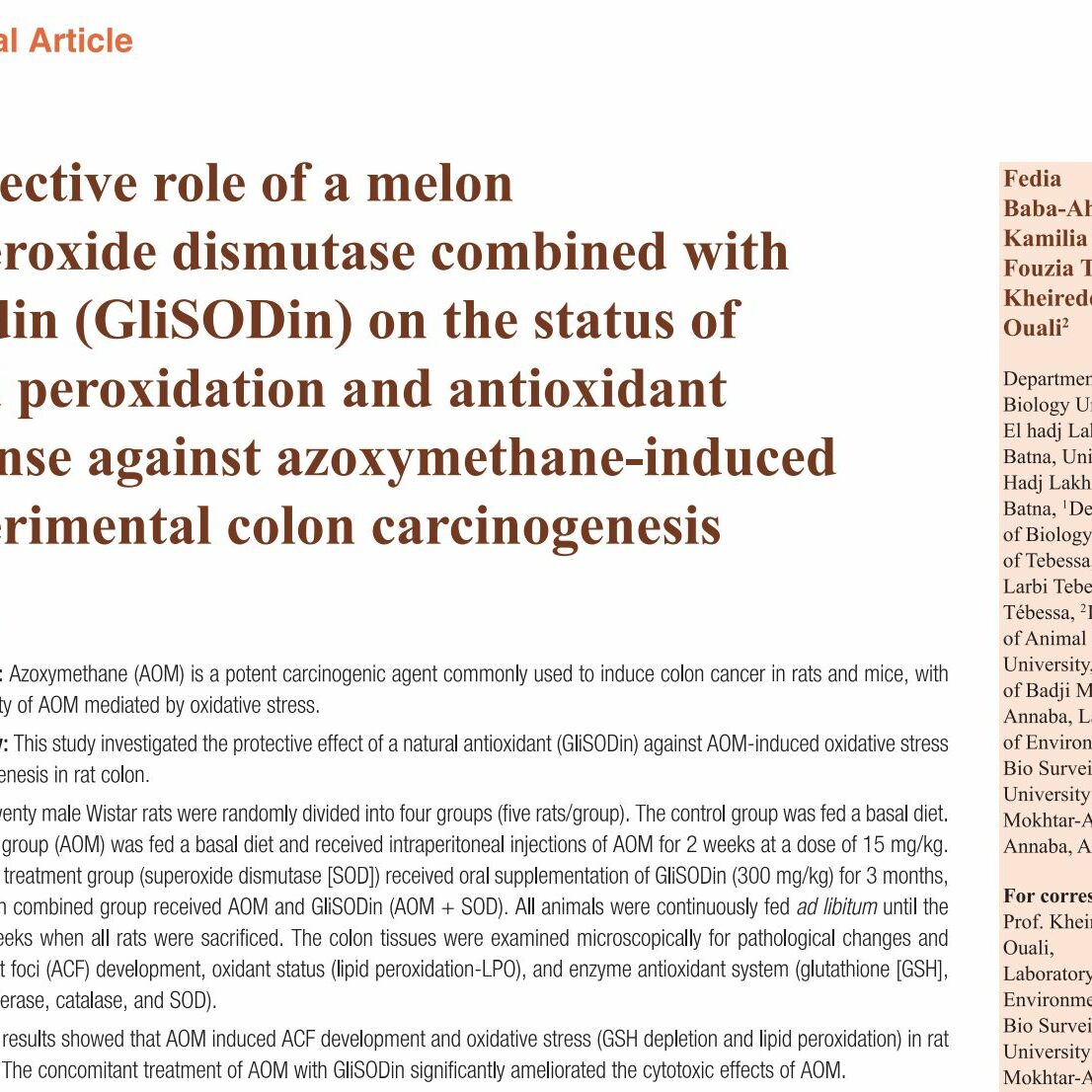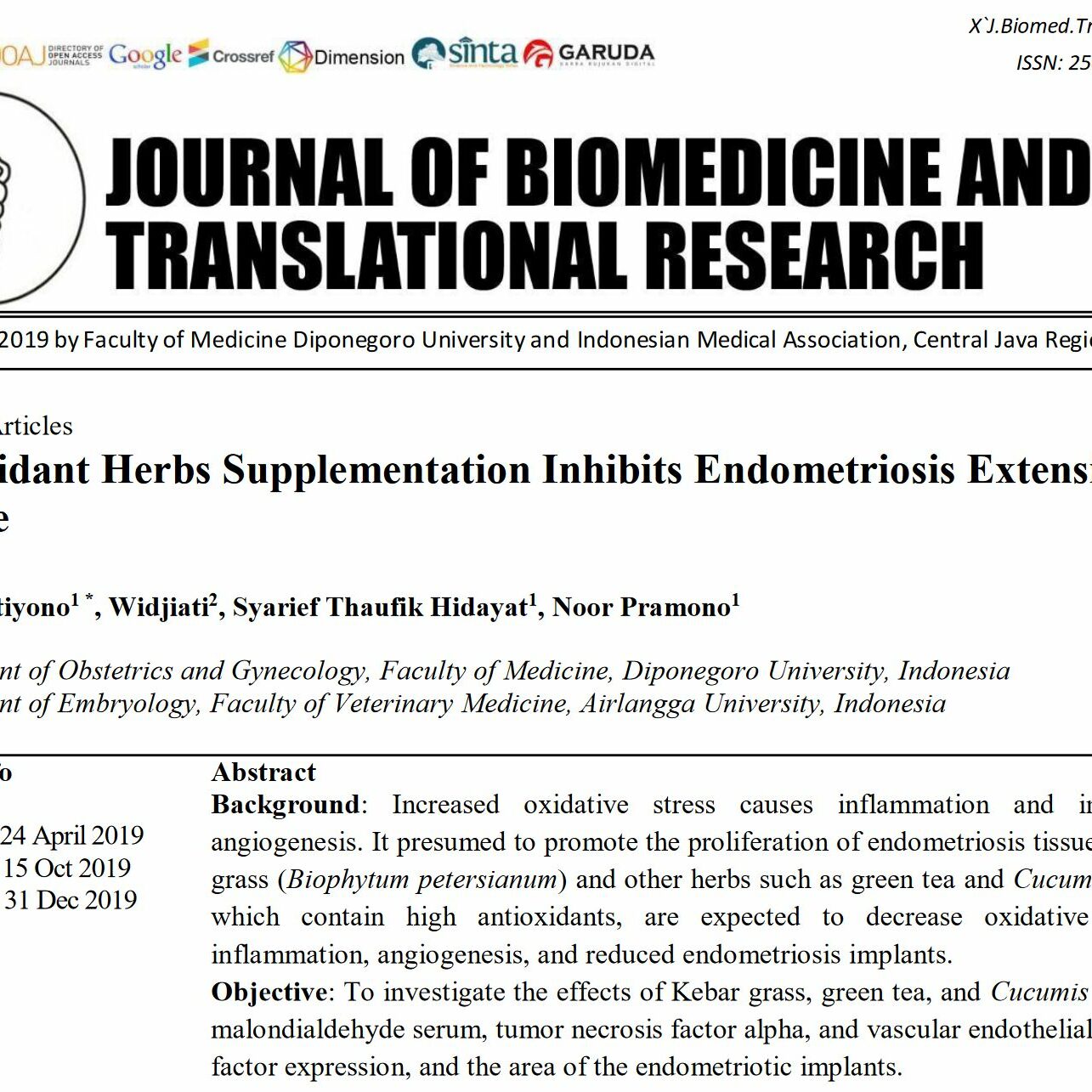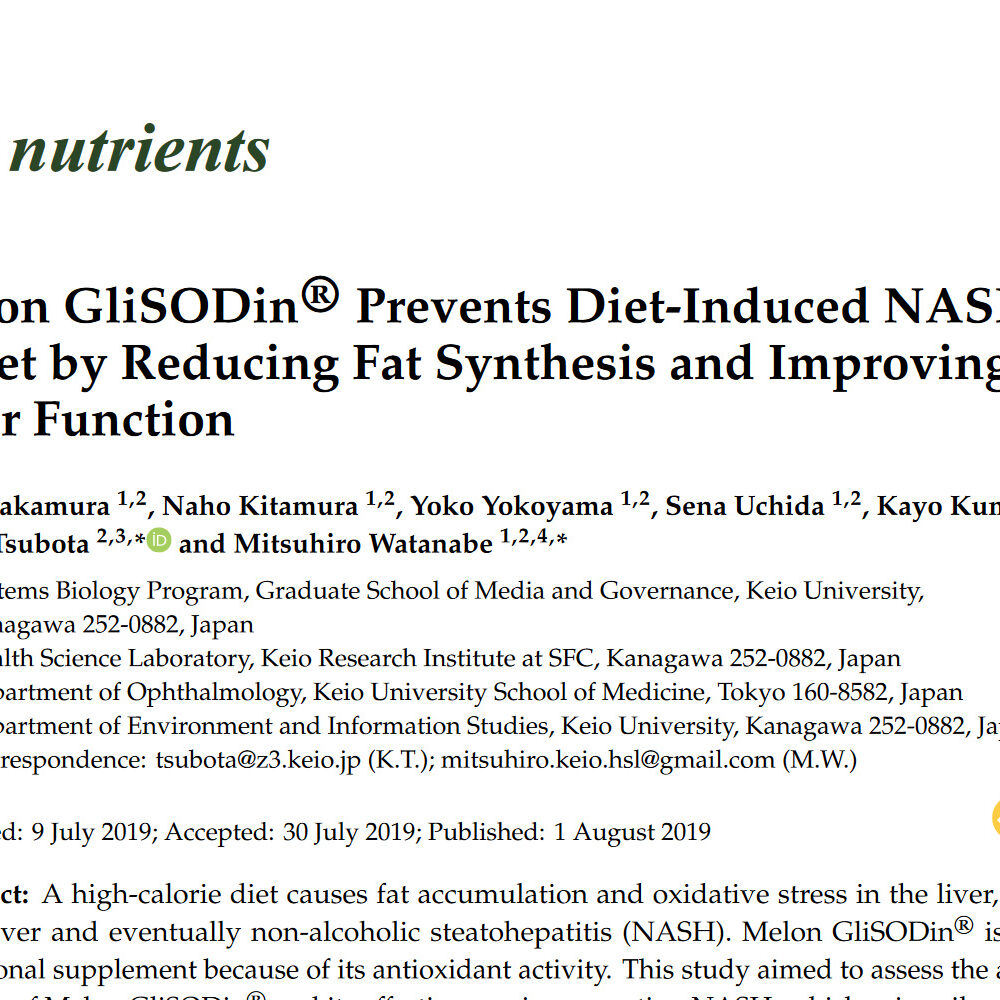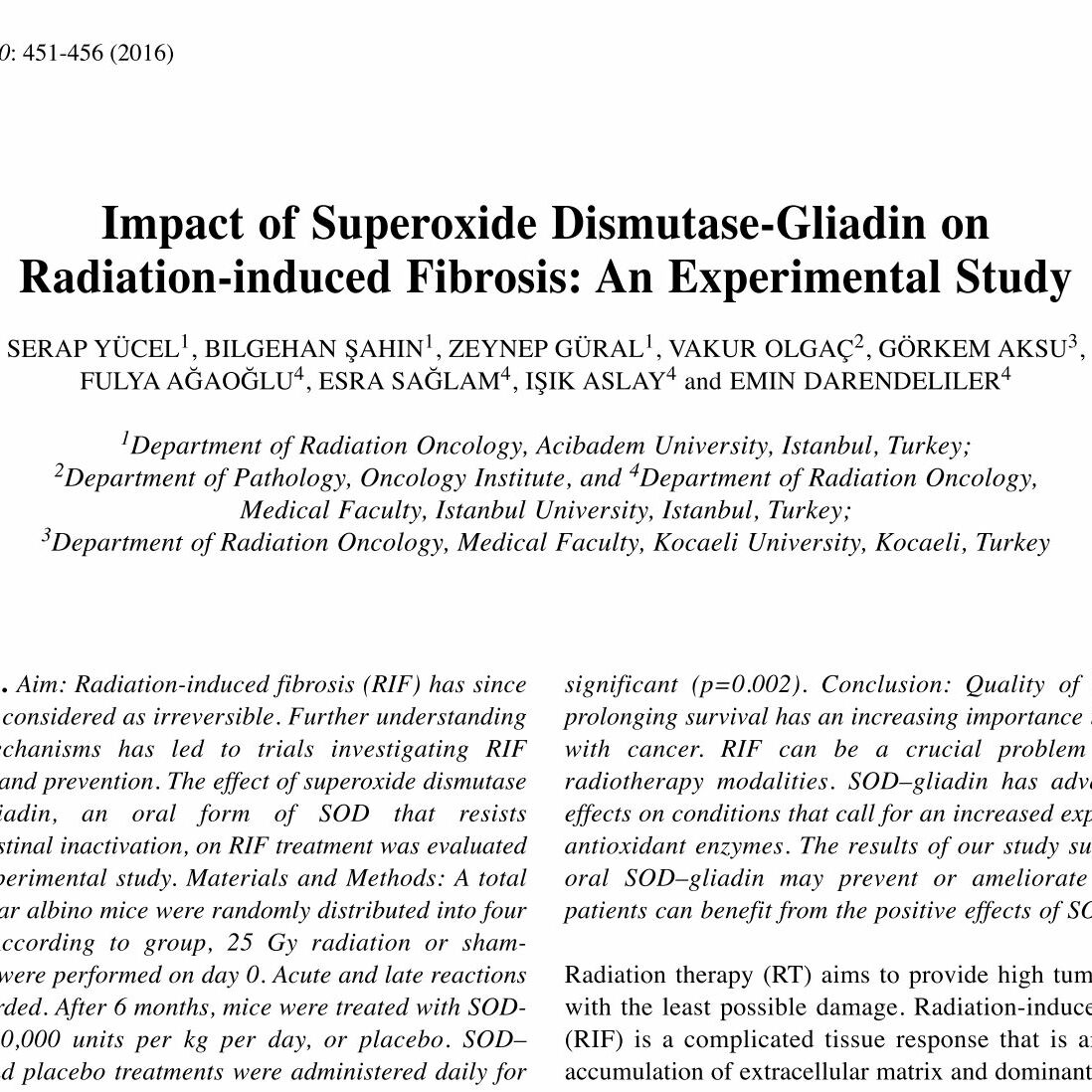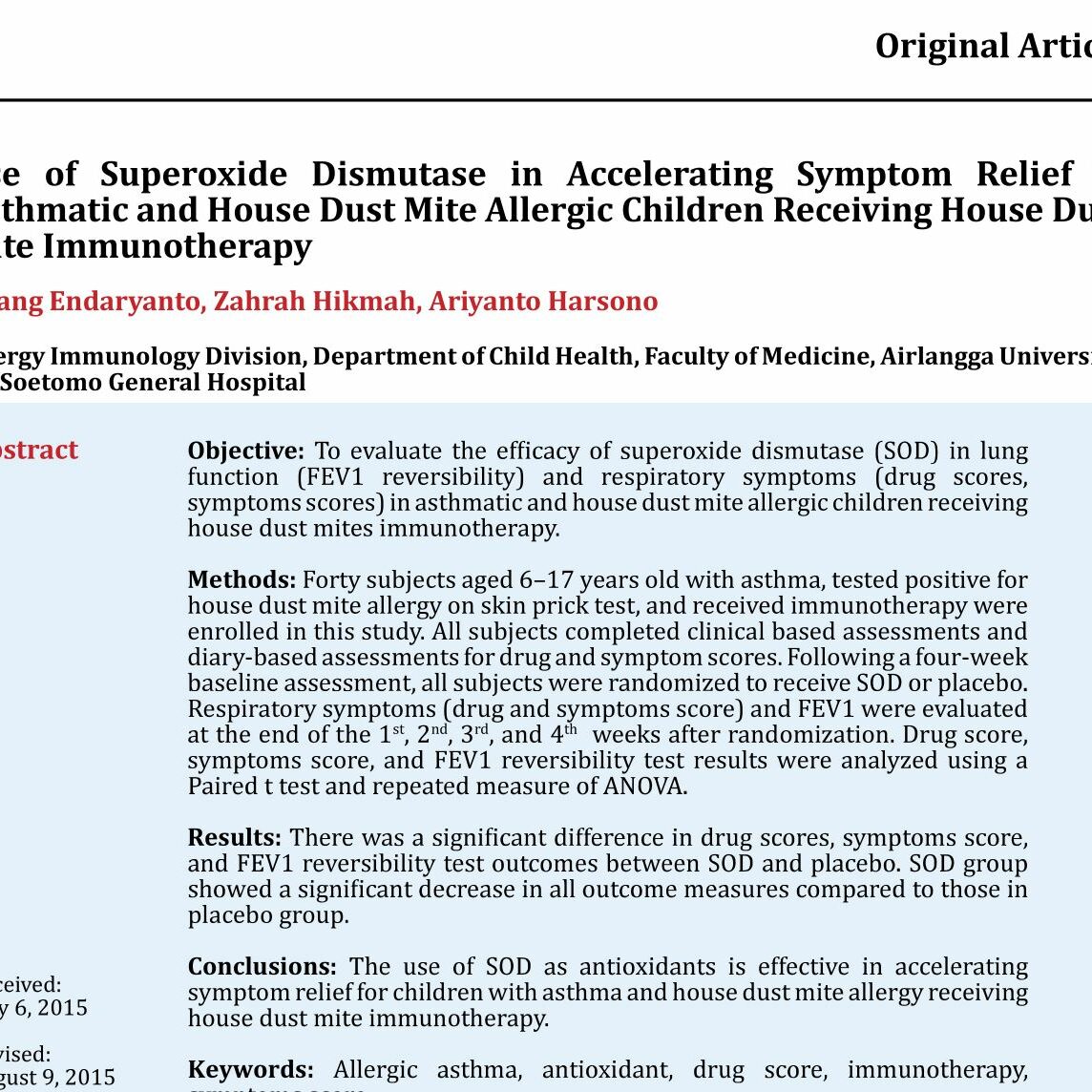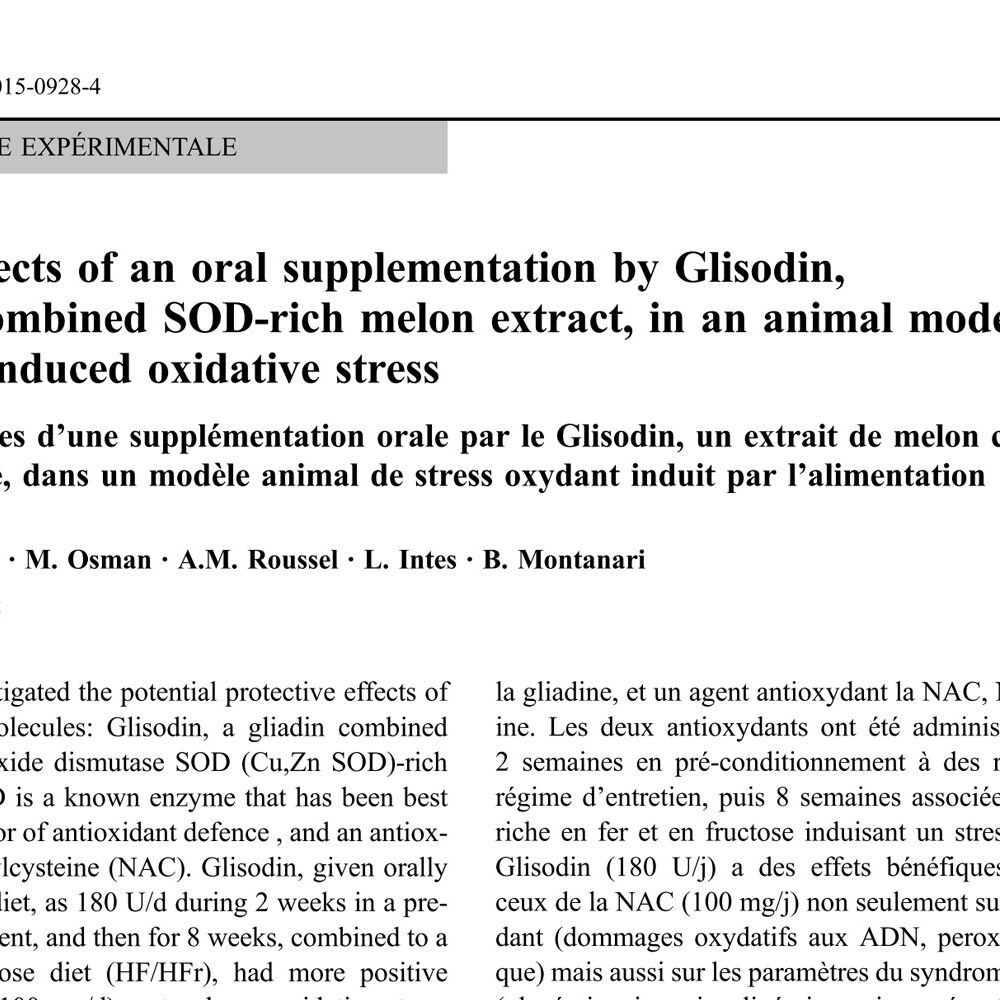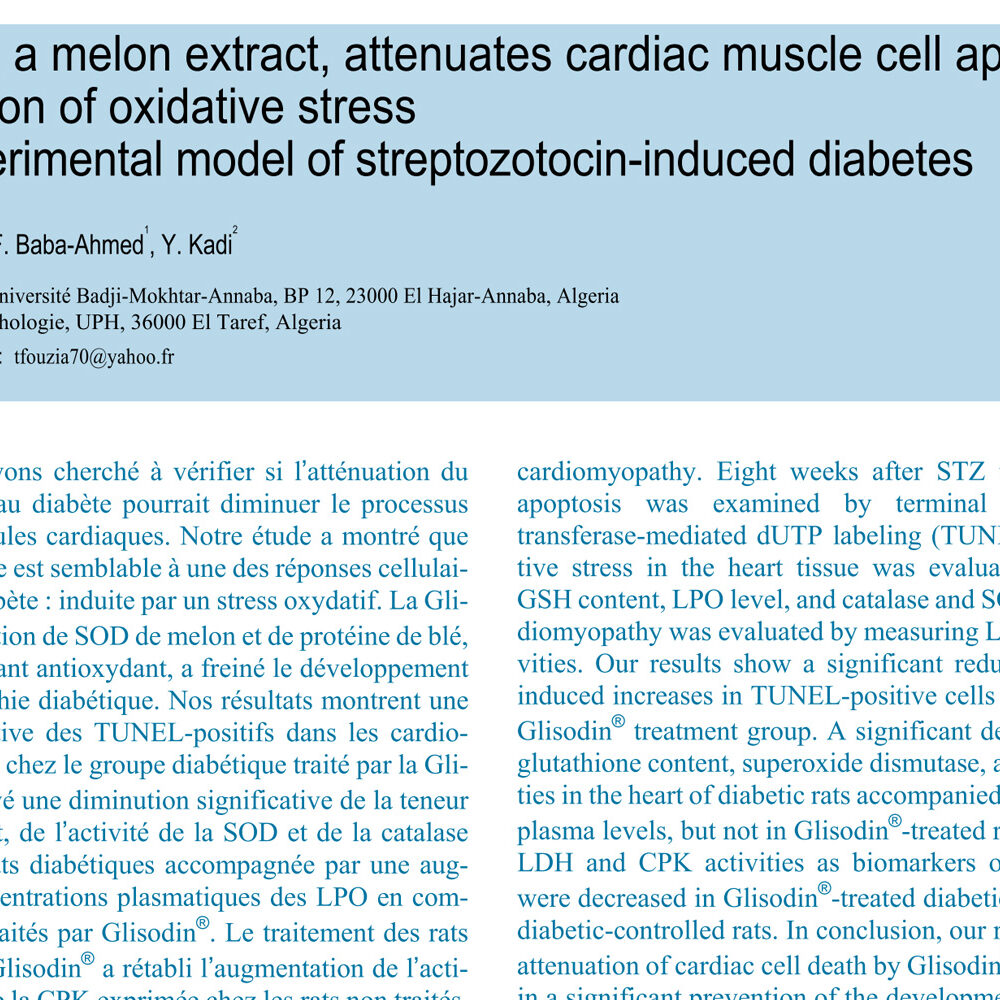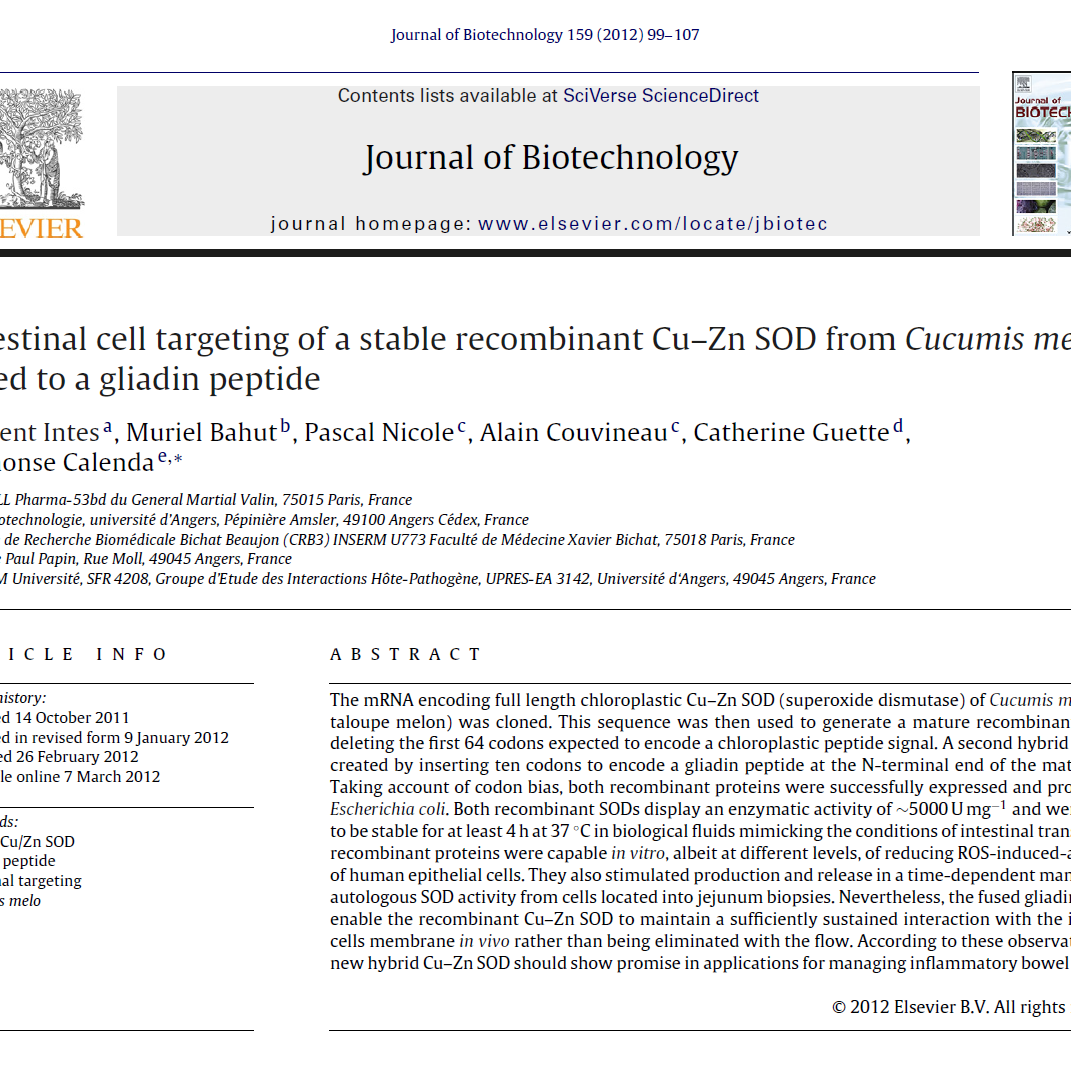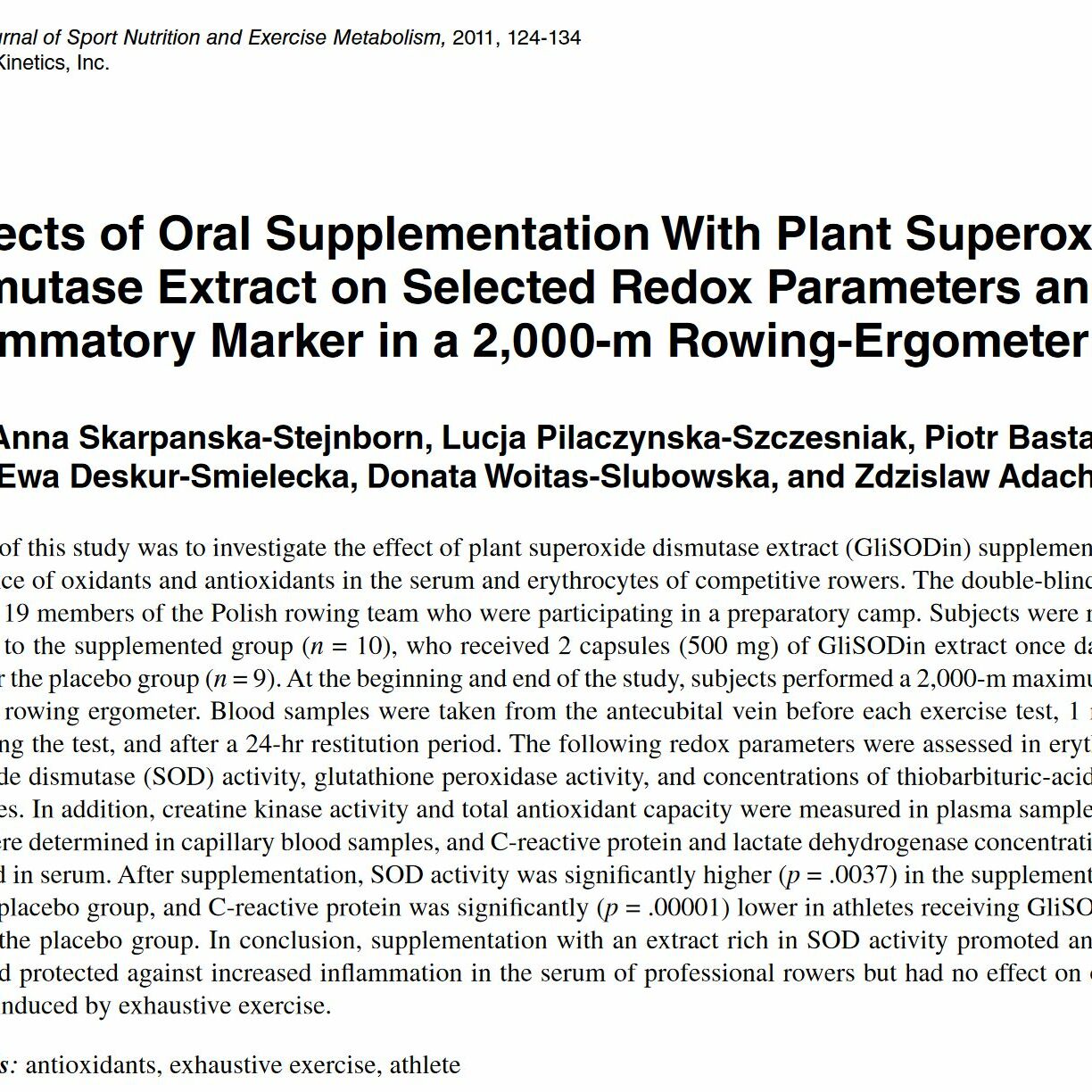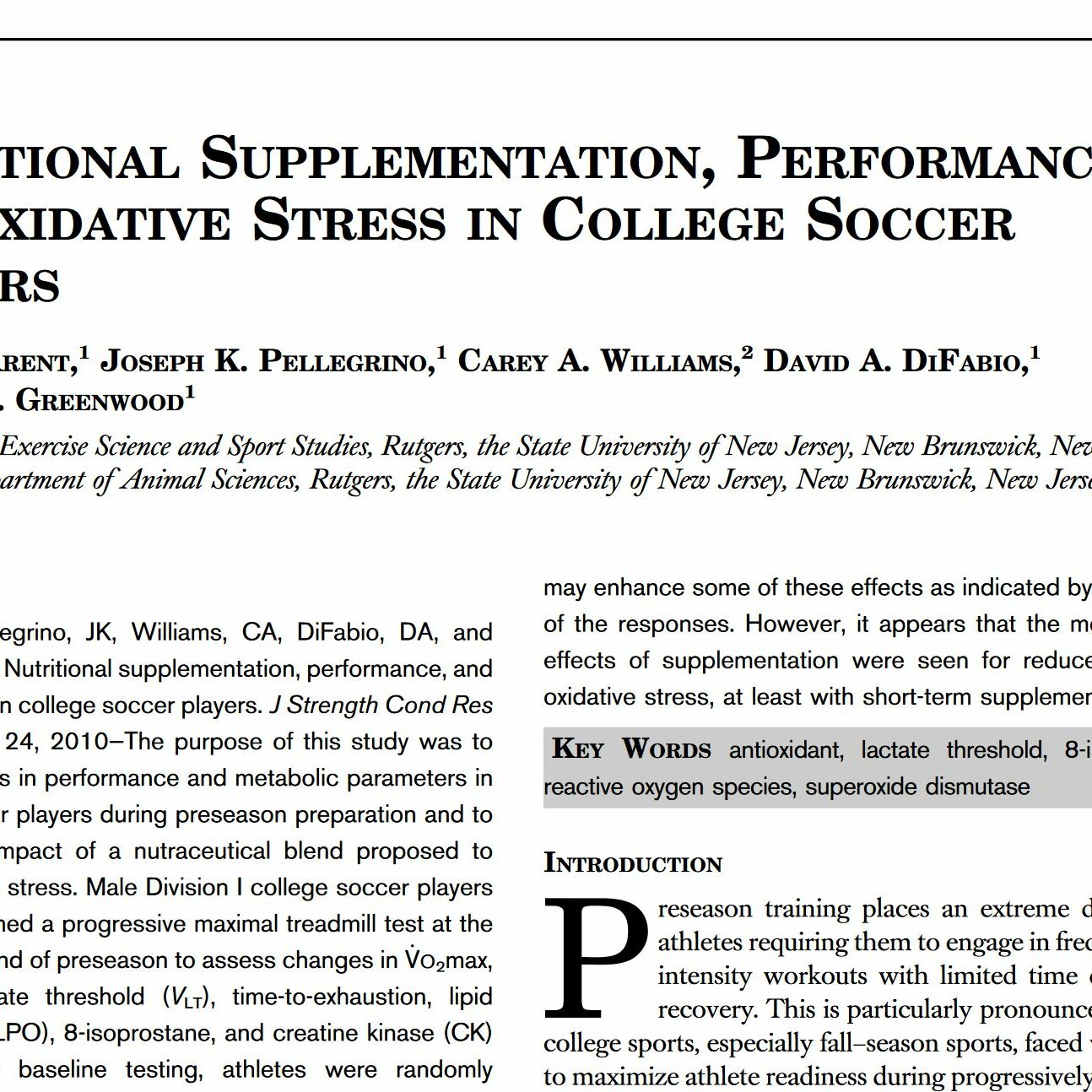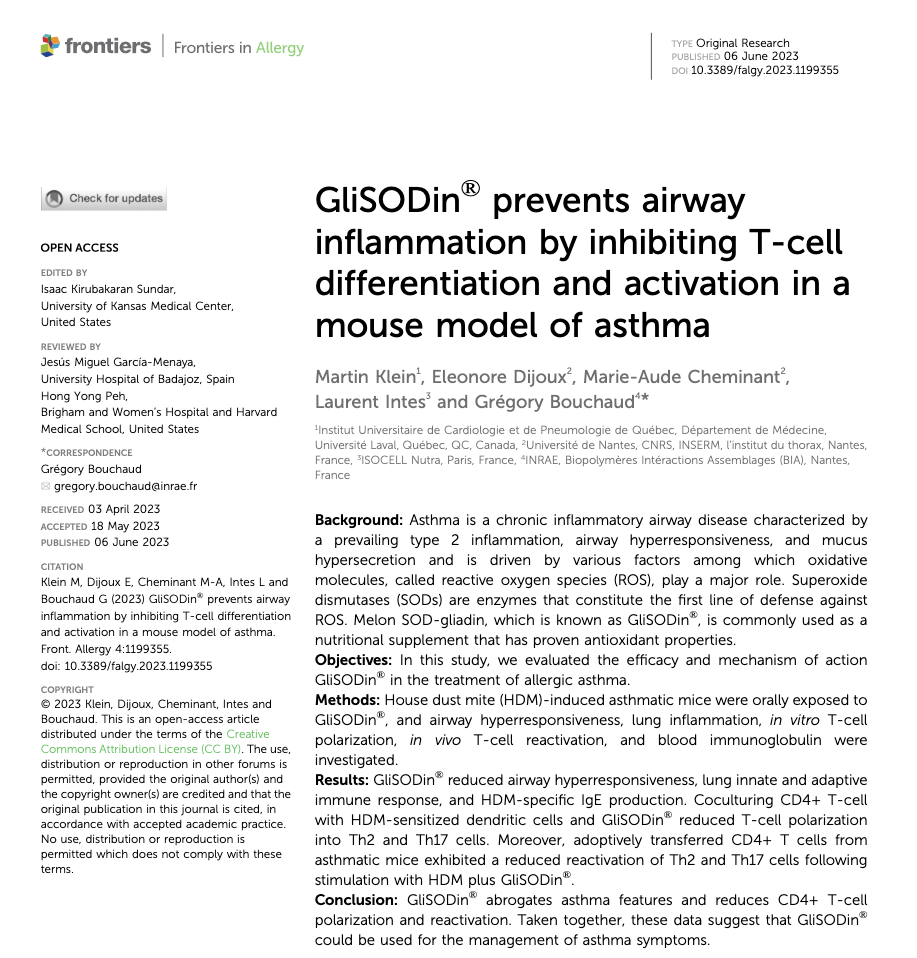
- Journal: Frontiers in Allergy
- Date: 2023 June
- DOI: 10.3389/falgy.2023.1199355
Abstract
Background: Asthma is a chronic inflammatory airway disease characterized by a prevailing type 2 inflammation, airway hyperresponsiveness, and mucus hypersecretion and is driven by various factors among which oxidative molecules, called reactive oxygen species (ROS), play a major role. Superoxide dismutases (SODs) are enzymes that constitute the first line of defense against ROS. Melon SOD-gliadin, which is known as GliSODin®, is commonly used as a nutritional supplement that has proven antioxidant properties.
Objectives: In this study, we evaluated the efficacy and mechanism of action GliSODin® in the treatment of allergic asthma.
Methods: House dust mite (HDM)-induced asthmatic mice were orally exposed to GliSODin®, and airway hyperresponsiveness, lung inflammation, in vitro T-cell polarization, in vivo T-cell reactivation, and blood immunoglobulin were investigated.
Results: GliSODin® reduced airway hyperresponsiveness, lung innate and adaptive immune response, and HDM-specific IgE production. Coculturing CD4+ T-cell with HDM-sensitized dendritic cells and GliSODin® reduced T-cell polarization into Th2 and Th17 cells. Moreover, adoptively transferred CD4+ T cells from asthmatic mice exhibited a reduced reactivation of Th2 and Th17 cells following stimulation with HDM plus GliSODin®.
Conclusion: GliSODin® abrogates asthma features and reduces CD4+ T-cell polarization and reactivation. Taken together, these data suggest that GliSODin® could be used for the management of asthma symptoms.

